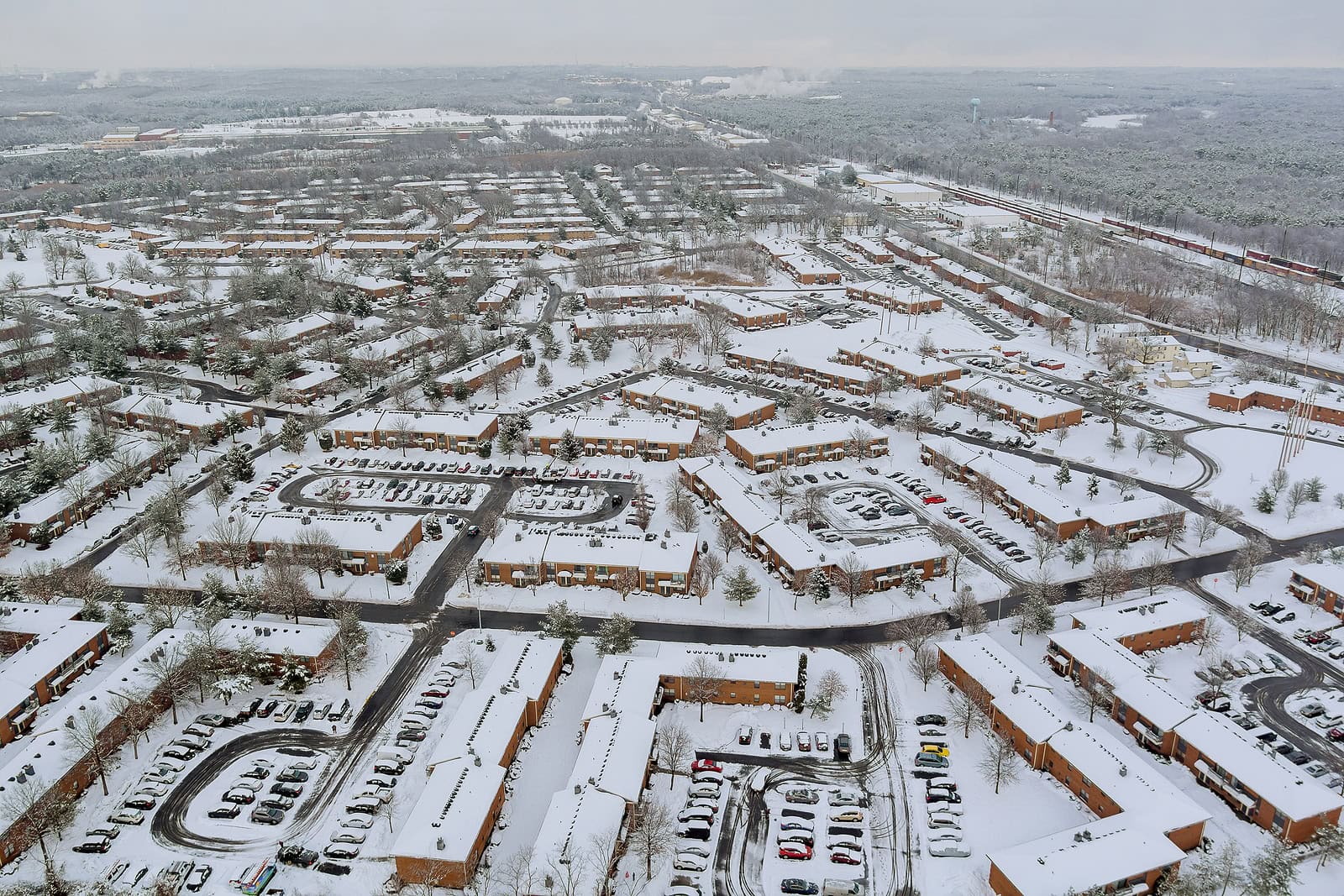
Texans like to make fun of our crazy weather. You have heard the jokes and one-liners: 1) if you do not like the weather in Texas, wait a minute, it will change; 2) we have four distinct seasons in Texas, they all happen in one week and in no particular order; or 3) nice winter we’re having this spring.
February 2021 brought Snow-Vid, Snow-Mageddon, the Snow-Apocalypse— pipes froze, utilities failed, properties were damaged, and residents were angry. Last year taught us our weather is unpredictable and it is important for multifamily professionals to be prepared for whatever Mother Nature sends our way.
When freezing rain, sleet, snow, or ice are in the forecast, one of the most frequent dilemmas we face is whether to sand, salt, or remove snow or ice. Like many landlord-tenant issues, begin by consulting the TAA Lease. Paragraph 24.4 states that the owner has no duty to remove ice, sleet, or snow; but the owner may do so in whole or in part, with or without notice.
In other words, you are not required to put salt on every stair rung, sidewalk, entrance, etc. nor remove snow from parking lots, balconies, common areas, etc. If you chose to move ice and snow, you can do so to any extent you desire and without prior notice. If you choose to abate winter weather, as always, make sure your onsite maintenance and office staff use the utmost caution when removing ice and snow.
Interestingly, Paragraph 24.4 does require the residents to do some things during freezing weather: 1) keep their unit heated to at least 50 degrees; 2) keep cabinet and closet doors open, and 3) to drip hot & cold water.
Dealing with freezing pipes is the other major winter challenge. Begin by reading the TAA REDBOOK article “Protecting Pipes in Freezing Weather.” This article contains detailed, excellent information about preventing damage from frozen pipes. Following are the highlights:
First, determine if it is necessary to have residents drip their faucets. Obviously, it is not necessary for residents to allow the faucets to drip every time the temperature goes below freezing. Major factors to consider are the predicted degrees below freezing, the duration of the cold weather, and the existing insulation in the buildings and on the pipes.
Next, if you determine that residents need to act, send your residents an “Emergency Freeze Notice to All Residents.” This notice should be hand-delivered and not just posted or put in mailboxes. It is recommended that the notice be personally delivered to the residents or left inside their dwelling units to minimize the alibi that “I never received the notice.”
Remember, it is o.k. to send the notice more than once. You are not pestering your residents by sending them multiple notices.
Also, you may be able to utilize email and social media outlets to disseminate time-sensitive information to your residents in an emergency situation. Many of our residents would prefer electronic notification.
Always assume that some residents will be gone and that others will claim they did not get the notice. Still, others will not read the notice or will simply refuse to abide by it. Usually, most residents do try to follow your instructions, but they will often miss the hot water faucets, washer connections, etc., or forget to leave the heat on if they leave for the weekend or holidays.
When it comes to relying on residents to do the right thing with an owner’s asset, trust but verify is a good mantra. During prolonged, severe cold, ensure that your onsite folks enter each and every apartment unit on a repeated basis during the entire freeze, even if the apartments are occupied and even if it is an inconvenience to your residents. Constant monitoring is needed.
Paragraph 28 of the TAA Lease authorizes the owner to enter the dwelling unit for the purpose of leaving notices, preventing waste of utilities, checking for water leaks, and inspections when immediate danger to person or property is reasonably expected.
Beyond resident units, be sure to take care to prevent frozen pipes in common areas or outside, such as water hydrants, laundry room sinks and washers, swimming pool pumps and lines, clubrooms, exposed lawn sprinkler lines, and water-cooled central A/C systems. You may have to actually drain some of these types of equipment.
If you disconnect the water in community laundry rooms, you need to post signs; otherwise, the residents may inadvertently burn up the motors if they fail to notice the disconnections. Watch out for ice buildup on steps and sidewalks because of dripping roofs or outside faucets. An ounce of prevention is worth a pound of cure. This staff time and expense of frequently inspecting the interior and exterior will be less costly than your plumbing bills for broken pipes.
Freezing weather is a challenge. But knowing what to do and when to do makes for happy residents, owners, and staff.
Nicole Zaitoon, Allied Property Management, is AATC’s 2022 Government Affairs Committee Chair and a member of AATC’s Board of Directors. For more information, contact Perry Pillow at ppillow@aatcnet.org.
